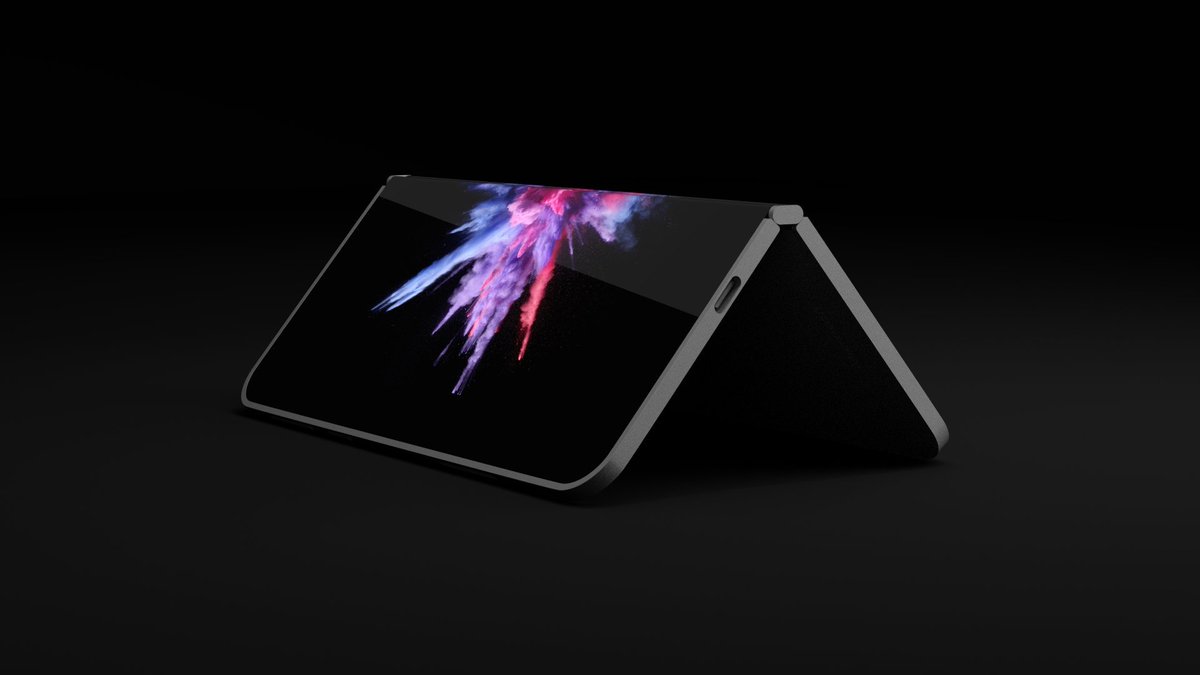Intel Thinks We Could See Bendable Laptops In 2 Years
Intel reportedly thinks foldable laptops could debut in about two years. (As opposed to all the laptops that already, you know, fold.) The company is collaborating with leading display manufacturers to explore the category's potential, according to a report today from Nikkei Asian Review, and we suspect those efforts revolve around the Lakefield processor that Intel showed off at CES 2019 in January.
Intel Client Computing Group vice president Joshua Newman reportedly told Nikkei Asian Review that the company is "trying to understand the capability and the limitation of the [foldable] technology." He also said that it will take "at least some two years" for such laptops to reach consumers, but said that might change if early impressions show that there's real demand for the category.
Bendable displays used to be the stuff of science fiction. But after manufacturers demonstrated numerous proofs of concept over the years, the technology was finally supposed to become a reality with the release of the Samsung Galaxy Fold smartphone. Now that seems unlikely--Samsung canceled the Galaxy Fold's launch after review units almost immediately suffered various problems--but Intel remains unfazed.
Still, it's hard to imagine a "foldable laptop." Bringing flexible displays to smartphones makes sense because they're essentially panes of glass with a bunch of computing power inside. Making them more flexible would allow people to carry bigger phones without having to worry about them fitting in their pockets, for example, which could further blur the line between a large phone and a small tablet.
We imagine a foldable laptop would blur the lines between a tablet and a laptop. Manufacturers have already pumped out countless 2-in-1 devices that rely on elaborate hinges (or disinterest in the device's longevity). Using flexible displays might allow those companies to make truly convertible devices that aren't just awkward mish-mashes of two categories.
That would likely require companies to create better touchscreen keyboards. People are better at typing on flat glass panels than they used to be, but we're pretty sure most would still prefer a good physical keyboard. We already know that companies like Microsoft are working on new haptic devices, and Apple patented a responsive glass keyboard. Typing on glass might not be that bad in a few years.
Which lead us to the internals. Lakefield could be perfect for these devices because it was designed to let Intel create system-on-chip (SoC) offerings that combine performance with diminutive footprints. The company showed off a new Lakefield processor-motherboard combo at CES 2019 that measured just 12 square-millimeters; that leaves plenty of room for a bendy laptop's other components.
Get Tom's Hardware's best news and in-depth reviews, straight to your inbox.
Intel said in January that the first Lakefield devices would come to market in late 2019. A company roadmap that leaked in April said the products would arrive in 2020, though, so it's not clear when they'll debut. Either way, the Galaxy Fold's botched launch supports Newman's claim that it'll be at least two years before flexible laptops reach consumers.

Nathaniel Mott is a freelance news and features writer for Tom's Hardware US, covering breaking news, security, and the silliest aspects of the tech industry.
